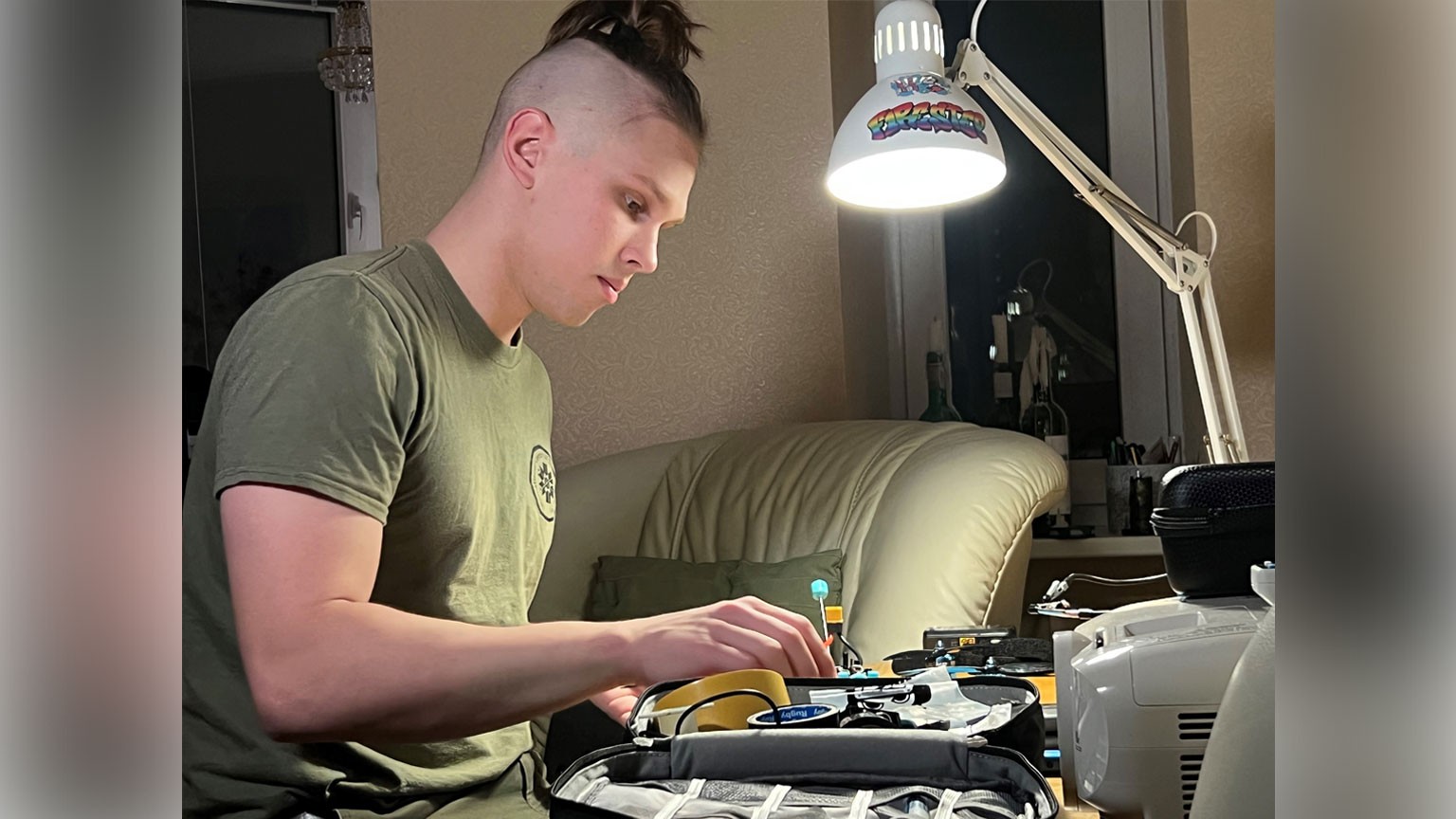Civilian experts train drone pilots
The Ukrainian NGO Boryviter Center of Excellence was established in April 2022 in response to the Russian invasion. Since April last year its staff and volunteers have been training Ukrainian military personnel to fly drones.
The organization uses a hangar in Kyiv where civilian engineers show soldiers how to fly and land drones.
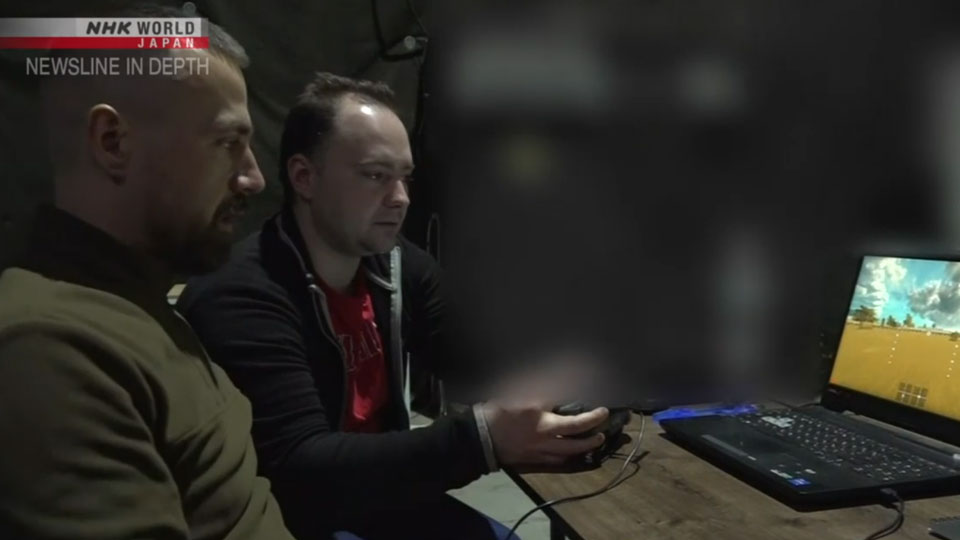
Training begins with simulators resembling video games, and indeed some of the instructors also have a day job developing games, but one of them says learning to handle a drone is much harder than anything you will play on an Xbox.
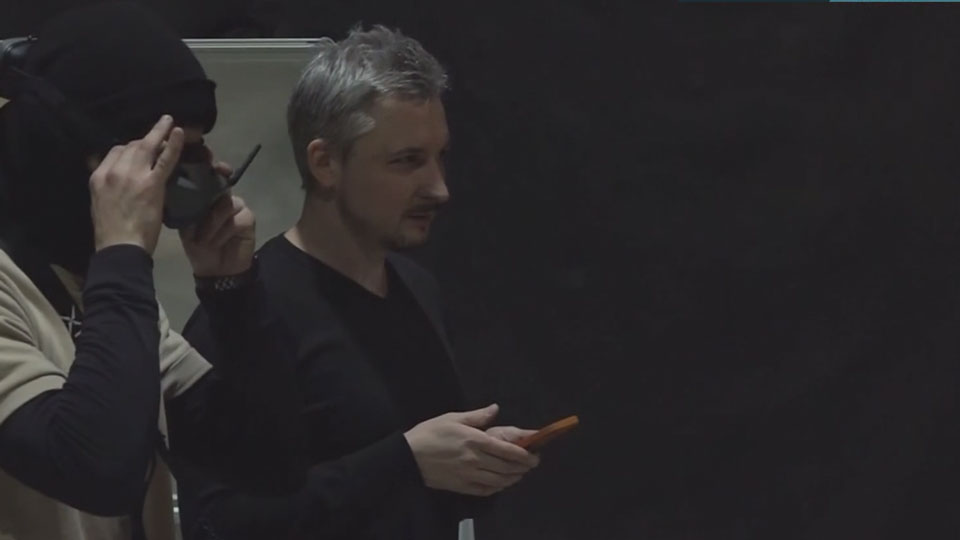
Instructor Ivan Kovalov says he doesn't get paid much for teaching the military, but he's happy if he can use his knowledge to help the soldiers.
After mastering the simulator, the soldiers move outside to learn how to maneuver the drones in the changeable weather conditions, just as they may have to do on the frontlines.
"This skill will help us destroy our enemy's equipment and defeat its troops," said one 25-year-old soldier.
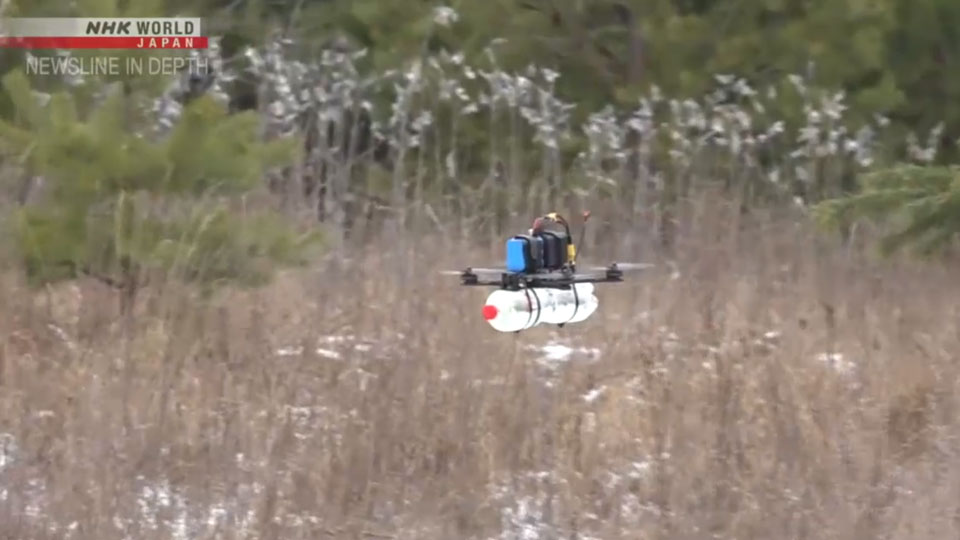
Private companies make military equipment
This year, the government aims to increase the defense industry production capacity sixfold from the 2022 level. To hit that target it is asking private companies previously unrelated to the defense industry to switch to military equipment. Many already have.
One firm specializing in farming machinery is now using its knowhow to build field sanitation and medical support equipment. Its founder spoke to us on condition that we not reveal the firm's name or location.
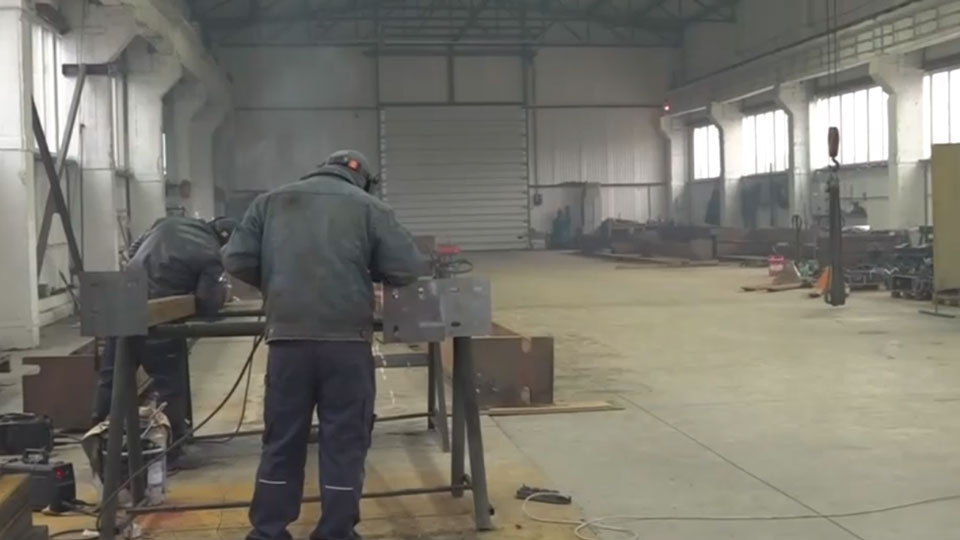
Its production lines are now turning out portable showers and toilets that can be used on the frontlines, as well as carts for carrying injured soldiers. 90 percent of its output is now war-related.
The founder says he knows the decision puts his facilities at greater risk of attack, but he's determined to do what he can for Ukraine.


"I'm not concerned about our equipment," he says. "Only the possibility of my employees getting hurt. But if we shrink in fear, we'll lose our country."
Civilians assemble drones at home
And there's a similar narrative unfolding in private homes across Ukraine. Game developer Matvii Karpenko, 23, has taught himself to build drones and now uses his teleworking equipment to pass on the knowledge to other civilians.
Karpenko buys the parts from eBay, e-commerce stores and other locations he finds via social media apps such as Telegram. He plans to send his completed drones to an organization that will check them, and if they're good enough, pass them on to the military.
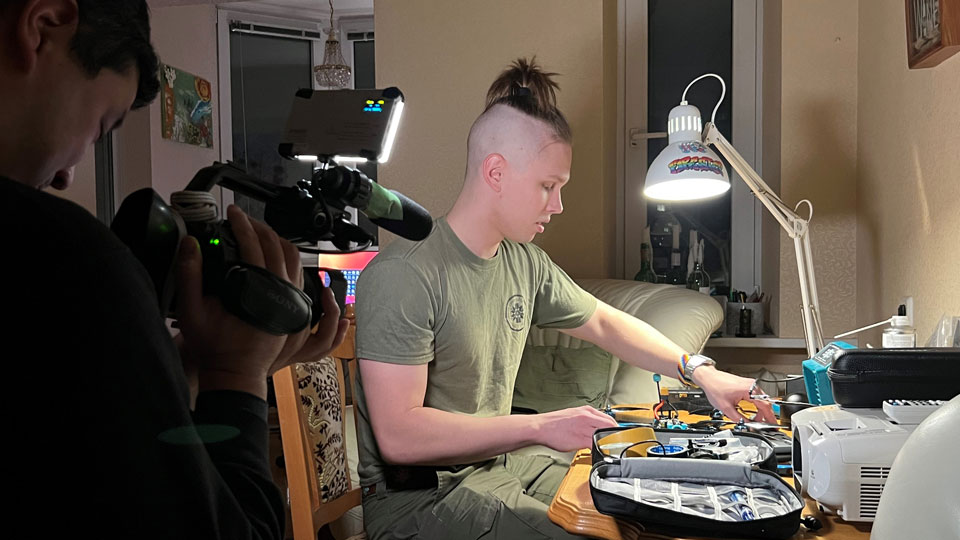
His main motivation, he says, is to put the knowledge to good use if he is called up for military service. Although he is currently too young to join the fighting, he knows it's on the horizon and wants to be as useful as possible. For now, though, he says every drone helps: "Maybe it's too strong to say this way, but 'one drone, one life.' It's very important to have a lot of these drones."
Controversy over a minister's call to civilians
In January, Ukrainian minister in charge of digital transformation Mykhailo Fedorov used his Facebook account to urge civilians to help with drone production.
The post drew more than 1,500 comments, some praising the idea but a clear majority outraged by it. Critics argued that drones assembled by unskilled citizens are less reliable, and that it is the job of the military to commission that kind of work.
But citizens have played a role in this conflict right from the start, and now as the leaders pivot to a greater reliance on drone warfare, they are finding volunteers willing and able to blur the civilian-military boundaries in this tech field too.
